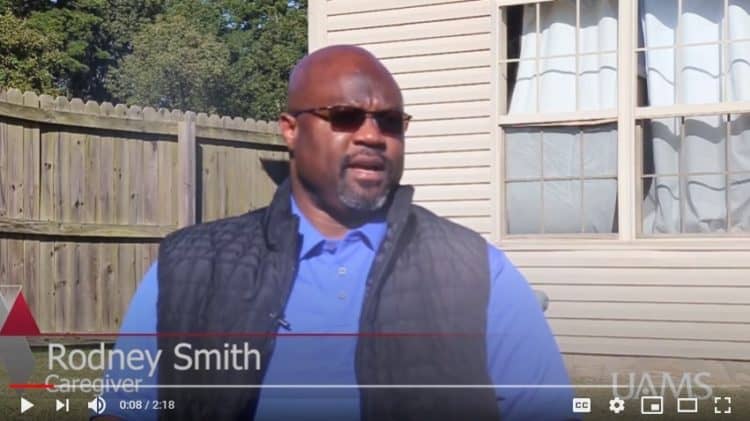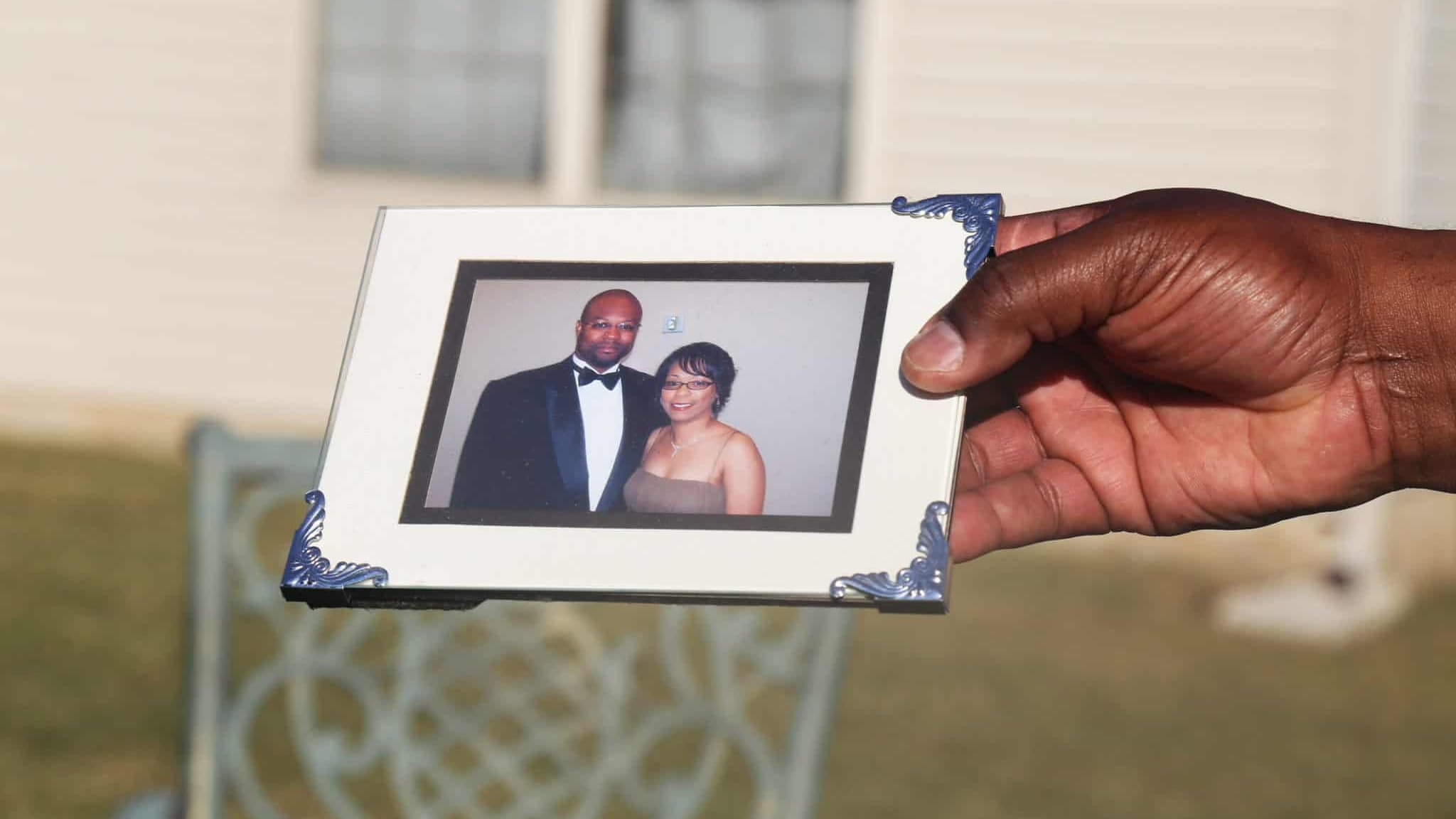National Caregivers Month: Early onset dementia
| When two people get married, vows often include through sickness and health, for better or worse. Like most things, these words are often easier when simply spoken.
Rodney Smith never expected he’d become his wife’s caregiver, especially not so soon in their lives.
He met Danielle when he was 19 while stopping to fill his car with gas.
“I’m facing one way and she’s facing the other way on the other side of the pump, and I just remembered her from high school and we started talking.”
Little did he know, that stop would change his life forever. A year-and-a-half later the pair tied the knot.
The Smith’s started their lives together in Germany after Danielle joined the Army. After serving a year in the Army, Danielle became pregnant with their first child and the couple decided to put down roots in Little Rock, Arkansas. They raised three children, two girls and a boy, along the way.
Rodney worked full-time while also leading the congregation at an area church. As Danielle watched her babies grow into children she developed a passion for teaching. She earned a bachelor’s degree and master’s degree while teaching high school English.
She was one semester away from earning her Ph.D. at the age of 41 when things began to change.
Danielle’s Diagnosis
In June 2015 Rodney began to notice subtle differences in his wife’s behavior.
“Forgetting conversations, just a little bit. It was nothing that really stood out. Looking back now knowing what we know you could tell, ‘ok those were early signs.’”
Forgetting her keys and forgetting to lock the door slowly progressed into several car accidents. Rodney felt that something wasn’t right and began looking for medical help.
After numerous doctors’ appointments with limited outcomes, he took Danielle to see Mark Pippenger, M.D., the director of the Walker Memory Center at the University of Arkansas for Medical Sciences (UAMS).
“He gave her a PET scan. That’s when he confirmed, he said ‘looks like she has early onset dementia.’”
This diagnosis in 2016 came as a shock as Danielle was only 41, however it is more common than many people realize. The Alzheimer’s Association estimates that 200,000 people in the United States have early onset dementia. Many of these people are in their 40s or 50s and have careers and families.
Caregiving
In 2016, Rodney stepped into the caregiving role when Danielle’s safety became a huge concern.
“We had gone downtown and renewed her teaching license and that was the last time she drove because on the way home she drove right through a four-way stop sign.”
It wasn’t long before Danielle had to stop working and needed round-the-clock care. Rodney managed Danielle’s medications, made sure someone was home to watch her, and he looked after their children who were 12, 19, and 20 at the time.
“I had to take the medicine and put it up then giving it to her myself in the morning or in the evening.”
By 2018, Danielle had lost the ability to care for herself or to communicate and life for Rodney became even more stressful. He was now a full-time caregiver.
“It begins to take a toll on you mentally watching someone you love just erode away in front of you.”
He knew it was very important for caregivers to take care of themselves, even on the hard days.
Rodney received some help from friends and family members who would bring food or sit with Danielle.
“It’s a heavy load because when you get off work you’re not off work. It’s like I was starting the second shift.”
After applying for disability for Danielle, the family received financial support seven months later and Rodney hired two caregivers who helped care for Danielle.
“They were almost like extended parts of the family so, that at least takes the mental pressure off of you knowing at home is covered.”
By September of 2019 Danielle’s health had drastically declined and she needed hospice care. Danielle passed away in April of 2020.
One of the last phrases she was able to say to Rodney was ‘I love you.’
Finding help for caregivers
Finding help and support for caregivers can be a chore. Family friend Carolyn Torrence, also the executive director of Alzheimer’s Arkansas, helps connect people to resources and was an advocate for Danielle.
“Caregivers across Arkansas need support and education. The reality is caregivers include all genders, races, ages and incomes. Most of us are not equipped to fulfill the vigorous role of caregiving. Caregiving can impact families financially, emotionally and physically,” said Torrence.
Alzheimer’s Arkansas offers support groups and workshops for caregivers.
The Arkansas Geriatric Education Collaborative at UAMS also provides resources for caregivers.
“The purpose of the Arkansas Geriatric Education Collaborative is to provide dementia-focused caregiver training and education to family members who are caregivers and paid caregivers to improve the care for older Arkansans, said Laura Spradley, outreach coordinator for the Arkansas Geriatric Education Collaborative at UAMS.
Sharing caregiver stories highlights the challenges they face in hopes of finding solutions.
“It is imperative that we tell the stories of these amazing caregivers in Arkansas and to work with organization such as Alzheimer’s Arkansas to provide assistance and resources,” she said.
Rodney said the journey of a caregiver isn’t one many people can relate to without hearing what it entails or experiencing it.
“To the caregivers who are helping a spouse, a child, or a parent, it’s a load that I never could have identified with if I hadn’t gone through it myself.”
If you are a caregiver and need assistance you can find resources at agec.uams.edu or by visiting the UAMSAGEC Facebook page.
The AGEC is funded by the Health Resources and Services Administration’s Geriatric Workforce Enhancement Program under grant #U1QHP28723.
